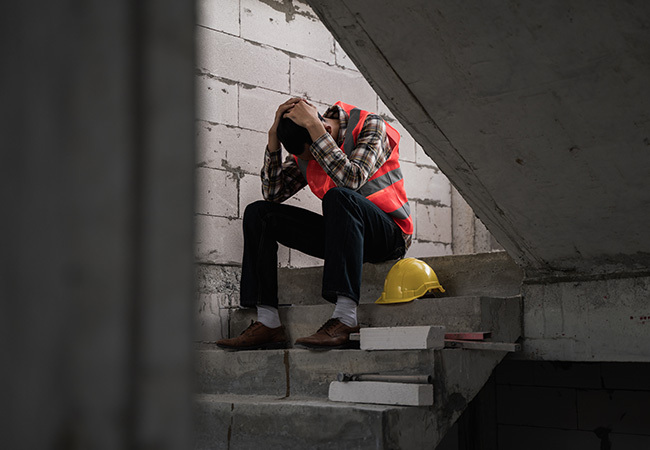Doing business or owning property in Hawaii comes with more risk than many realize. From car accidents on Oʻahu to rental liability on Maui, one lawsuit could exceed your basic insurance fast. That’s where Hawaii umbrella insurance makes all the difference.
This guide explains who needs umbrella coverage, what it protects, why Hawaii’s risks are unique, and what you’ll pay for peace of mind.
WHO NEEDS UMBRELLA COVERAGE IN HAWAII?
There is no state law that requires umbrella insurance coverage in Hawaii—but if you own property, vehicles, or run a business, it’s often essential.
Insurers typically require minimum base policy limits before offering umbrella coverage. Common requirements include:
Auto insurance: $250,000 per person / $500,000 per accident for bodily injury liability, plus $100,000 for property damage Homeowners insurance: At least $300,000 in personal liability
These requirements vary by insurer and are not mandated by state law.
Construction firms: Must carry general liability and workers’ compensation. Umbrella coverage is highly recommended for jobsite risks.
Healthcare providers: Often need malpractice plus personal liability insurance Hawaii providers offer through umbrella plans.
If you don’t maintain these base coverages, your umbrella policy won’t activate when you need it most. See our full guide on the essential insurance policies contractors need here.
WHAT HAWAII UMBRELLA POLICIES COVER
Standard business or personal policies protect against everyday events. But what happens when a lawsuit demands $1 million or more?
That’s when umbrella coverage steps in—with benefits such as:
Extended Liability Protection: Adds $1 million or more on top of your general liability, auto, or homeowner limits
Legal Defense Coverage: Pays attorney fees and court costs—even if you’re not found liable
Non-Traditional Claims: Covers lawsuits tied to slander, libel, or social media posts
Worldwide Protection: Your coverage follows you beyond Hawaiʻi’s borders—ideal for business trips, rentals, or property held abroad
Example: A guest is burned by faulty wiring in your Maui vacation rental. They sue for $900,000. If your homeowner’s liability caps at $300,000, your umbrella insurance coverage fills the $600,000 gap.
REAL-WORLD CLAIMS & COMMON RISKS IN HAWAII
While Hawaiʻi seems like paradise, it’s also home to serious liability risks—legal, environmental, and tourist-related.
Top sources of umbrella claims:
Auto Accidents with Major Injuries: Car crashes in Honolulu or Hilo involving multiple parties can exceed standard policy limits fast
Bodily Injury on Property: A tenant falls down unlit stairs in your Kauaʻi rental and suffers a spinal injury
Defamation or False Statement Lawsuits: An employee posts defamatory comments online about a competitor
Vacation Rental Hazards: If a tourist is injured using recreational gear (e.g., jet skis or pool equipment), you could face six-figure lawsuits
Hurricanes, flooding, and high legal fees only add to the exposure. In a high-cost legal environment like Hawaii, personal injury claims can exceed $1 million—especially when tied to tourism or natural disasters.
UMBRELLA POLICY COST HAWAII: WHAT TO EXPECT
Wondering about umbrella policy cost Hawaii businesses and homeowners pay? It is lower than you might think.
Here’s what most pay annually:
- $1 million in coverage: $200–$400
- $2 million: Around $475
- $5 million: Around $700–$800
What affects your premium?
- Number of homes, vehicles, or rentals you own
- Risky features: Pools, trampolines, watercraft, or steep terrain
- Industry exposure: Healthcare, construction, and real estate cost more
- Driving records (personal or employee): Accidents or DUIs increase your premium
Compared with California or Florida, umbrella insurance in Hawaii faces similar market pressures, but premiums are rising because of climate events and lawsuit frequency.
HOW TO FILE A CLAIM IN HAWAII
If an incident occurs, Hawaii insurance laws require you to follow strict procedures. Here’s how to file a claim:
- Notify your base and umbrella insurer immediately
- Submit documentation: Medical records, photos, police reports
- Cooperate fully: Claims adjusters will investigate thoroughly
- Use available resources: The Hawaii Department of Commerce and Consumer Affairs (DCCA) Insurance Division can provide guidance on insurance disputes
If you fail to maintain required base policies, your umbrella claim may be denied.
BOTTOM LINE: WHY YOU NEED UMBRELLA COVERAGE IN HAWAIʻI
Operating a business or owning property in Hawaiʻi means higher risks from weather, tourists, legal costs, and rental liability. A single lawsuit could endanger everything you’ve built.
Here’s how to protect it:
Make sure your base policies meet minimum thresholds set by your insurer
Add umbrella coverage before disaster strikes
Avoid financial ruin for as little as $200–$400/year per million in coverage
Stay informed about Hawaii insurance market developments
Or call and speak directly with our Hawaii specialists: (855) 718-7552





